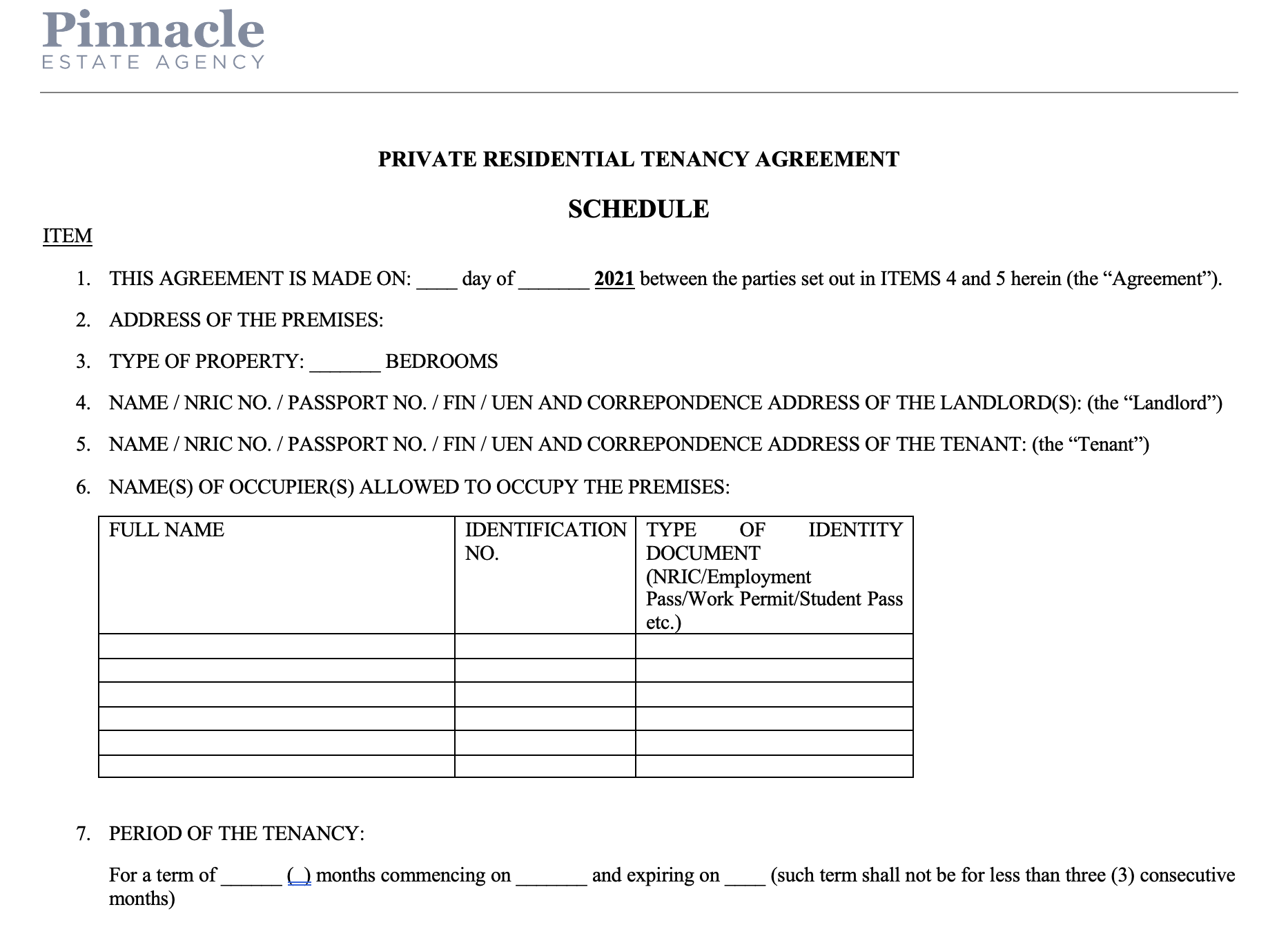How Landlords in Singapore Can Evict Problematic Tenants
This article discusses the eviction process, and an alternative to eviction
Eviction is usually the last resort for landlords when dealing with a problematic tenant who has breached the tenancy agreement. It’s a legal process that ultimately ends with the tenant being removed from the property.
There are many number of reasons why a landlord may want a tenant removed from their property. However, the only circumstance in which this can be done legally is when the tenant is in breach of his/her tenancy agreement.
Types of breaches that are serious enough to evict a tenant include the following:
- Non-payment of rent or paying it late on a consistent basis;
- Damaging the property; and
- Using the property for illegal activity, which can cause legal problems for the landlord, like running a business in a residence or subletting to illegals.
If you have a tenant who has breached the tenancy agreement in one of the above ways and you want to evict them, keep reading to learn how to do it in Singapore.
Eviction is a Process
To legally evict a tenant in Singapore, you must take these steps:
- Send written notice to the tenant terminating the tenancy.
- Get a court order enforcing your notice.
- Obtain a writ of possession.
- Evict (remove) the tenant.
1. Send written notice to the tenant terminating the tenancy.
The written notice terminating the tenancy should clearly state which breach of the tenancy agreement is causing the eviction. If the breach can be remedied, the notice should spell out what the tenant can do to remedy the breach if they want to continue with the tenancy.
For example, if the breach is for not paying rent, you can explain that the tenant must pay all back rent. If the breach is for property damage, the tenant can be required to pay for repairs or the cost to make good of the damages.
Your written notice should also include:
- Information on how many days the tenancy agreement allows for termination; and
- Notification that the tenant is required by law to have vacated the property by the end of the notification period.
If this gets your tenant to move out, fantastic. If not, since you’ve given your tenant ample chances to adhere to the terms set forth in the tenancy agreement, you now have no choice but to get a court order to enforce it.
2. Get a court order enforcing your notice.
For your tenancy notice to be enforced, the court needs to issue a judgment in your favour. If the total amount the tenant owes you for back rent or damages does not exceed $20,000, you can have your case heard in the Small Claims Tribunals.
If what you are owed is more than $20,000, you may need to hire a lawyr to take your case to District Court or Magistrate’s Court.
3. Obtain a writ of possession.
Once the court has ordered the tenant to pay you what they owe, and if the tenant disobeys the court order, you now have the ability to enforce the court order through a writ of possession.
With a writ of possession, you can get the Sheriff to take possession of the tenant’s belongings to recover the amount of money he/she owes you.
If you are specifically evicting your tenant for non-payment of rent, the court will allow the tenant to have four weeks to pay the full amount of the rent owed. If your tenant does not pay up, your writ of possession will be granted by the court.
If you are evicting your tenant for some other reason, your tenant has a right to apply to the court to fight the eviction. It will then be up to the court to either grant your writ of possession or not.
If the court decides in your favour by granting your writ of possession, it will inform your tenant through a Notice of Eviction with the date and time that he/she must vacate your property/land. The court will also notify you of that date and time by having the Sheriff issue an appointment letter.
Evict (remove) the tenant.
You or your agent are required to be at the property during the eviction in order to execute the writ and the eviction.
The Sheriff and/or a Bailiff who has the power to execute court orders, will be there as well, and if necessary, use force to enter the property. You are required to pay an attendance fee for them to be there.
They will serve the tenant the eviction papers, make a list of all the tenant’s items in the property and seize them. Your tenant’s possessions will be sold to satisfy his/her debt to you. And at that time, the tenant will be evicted from the premises.
Tenants who refuse to vacate the premises when their tenancy ends can be charged twice the rent without being notified ahead of time until they have left.
After Evicting the Tenant
Once you’ve successfully evicted your tenant, he/she must have your permission to re-enter the property.
We recommend that you have the locks changed right away and certainly before a new tenant moves in just in case your errant tenant has kept copies.
Eviction Alternative
Eviction is a serious measure, one that you may want to avoid until there is no other option, especially if your tenant has been fairly reliable.
However, if your tenant has not been paying rent while continuing to live there but you’re reluctant to go through the stress of finding another tenant, you may find that applying for a writ of distress is a reasonable alternative.
When the court issues a writ of distress for non-payment of rent it means that you can have a bailiff seize the tenant’s belongings and retain them all, until he/she pays the rent owed. Or the bailiff can sell them to cover the unpaid rent if he/she doesn’t pay up. A writ of distress also allows a continuation of the tenancy, so the tenant is not being forced to vacate the property. Read more on Writs of Distress Can Help Landlords Collect Unpaid Rent from Tenants
If you would like to consult with a lawyer regarding your options for dealing with a problematic tenant, you can contact us for a referral to one of our experienced partner lawyers.
Disclaimer: The information provided in this article does not constitute legal advice. We recommend that you get the specific legal advice you need from an experienced attorney prior to taking any legal action. While we try our best to make sure that the information provided on our website is accurate, you take a risk by relying on it.
At Pinnacle Estate Agency, we strongly believe in sharing our real estate knowledge to the public. For more content like this article, check out our Singapore Property Guides.








